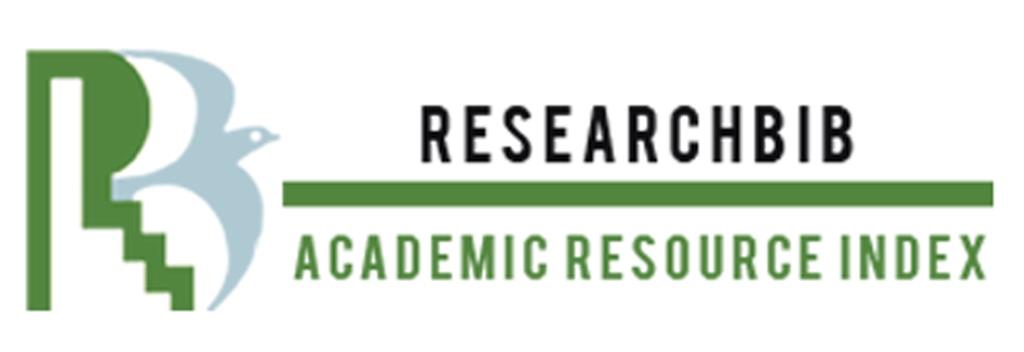ANALYSIS OF POLITICAL SPEECHES AND ADDRESSES BASED ON SELECTED LINGUISTIC TOOLS
Abstract
The proposed research aims to analyze linguistic features and addresses of political discourse using different linguistic devices. By analyzing public political performances of politicians and presidents I will research how that civil servants shapes public opinion using rhetorical and linguistic devices in their speech. Moreover, this work will have information about what kind of words, signs or gestures uses politicians to manipulate and persuade their audiences. As we all know, there are different kind of politicians with different styles of speech who is trying to convince and get their listeners attention and voice. And this research work will show the comparisons between these different styles of talking to different auditory. Also, there will be a comparison of various politicians from Kyrgyzstan and other countries, which will show the differences and similarities of speaking in public or interviews during the election, where they can promote themselves and influence the audience using different language aspects, and people’s interests.
Downloads
References
Fairclough, N. (2013). Critical Discourse Analysis: The Critical Study of Language. Routledge.
Halliday, M.A.K., & Matthiessen, C.M.I.M. (2014). An Introduction to Functional Grammar. Routledge.
Wodak, R. (2009). The Discourse of Politics in Action: Politics as Usual. Palgrave Macmillan.
van Dijk, T.A. (2008). Discourse and Context: A Sociocognitive Approach. Cambridge University Press.
Charteris-Black, J. (2011). Politicians and Rhetoric: The Persuasive Power of Metaphor. Palgrave Macmillan.
Chilton, P. (2004). Analysing Political Discourse: Theory and Practice. Routledge.
Obama, B. (2012). Selected Speeches 2007–2012. Knopf Doubleday Publishing Group.
YouTube and news media platforms. Various political speeches analyzed for research purposes.
Lakoff, G. (2004). Don’t Think of an Elephant! Know Your Values and Frame the Debate. Chelsea Green Publishing.
Aristotle. (2007). On Rhetoric: A Theory of Civic Discourse. (G. A. Kennedy, Trans.). Oxford University Press
Madaminjonovna, G. S., & Bahiru, K. (2024). THE IMPORTANCE OF TIME MANAGEMENT IN TEACHING PROCESS. International Journal of Education, Social Science & Humanities, 12(3), 686-690.
Madaminjonovna, G. S. (2024). REALIAS, WORDS EXPRESSING NATIONAL IDENTITY, CHARACTERISTICS OF THEIR RECREATION IN TRANSLATION. JOURNAL OF MULTIDISCIPLINARY BULLETIN, 7(1), 195-199.
G'OFUROVA, S. M. THE ESSENCE OF THE USE OF INTERACTIVE TECHNOLOGY IN TEACHING A FOREIGN LANGUAGE. АКТУАЛЬНЫЕ НАУЧНЫЕ ИССЛЕДОВАНИЯ В СОВРЕМЕННОМ МИРЕ Учредители: Общественная организация" Институт социальной трансформации", 62-66.
Sarvara, G. O. (2023). READING STRATEGIES UNDER THE ESP APPROACH. UNIVERSITETI XABARLARI, 1(1).
Abakulovna, K. O. (2022). AN APPROACH OF IMPROVING ARCHITECTURE STUDENTS’ENGLISH VOCABULARY. Galaxy International Interdisciplinary Research Journal, 10(2), 118-121.
Turg‘unov, S. (2023). O ‘ZBEK XALQ O ‘LANLARIDA ETNIK MANSUBIYAT IFODASI. Farg'ona davlat universiteti, (2), 89-89.
Turg‘unov, S. (2022). HARBADOSHLARNING O ‘LANGA NISBATAN TA’RIFI XUSUSIDA. Farg'ona davlat universiteti, (3), 30-30.
Dolikhonovich, T. S. (2024). RELATED TO THE MARRIAGE WEDDING CEREMONY IS THE STUDY OF LYRICAL GENRES. American Journal of Philological Sciences, 4(01), 31-37.
Turgunov, S. D. (2019). ОБ АРЕАЛЬНЫХ СВОЙСТВАХ НАМАНГАНСКИХ НАРОДНЫХ ПЕСЕН. Theoretical & Applied Science, (5), 24-29.
Turgunov, S. D. (2018). GENRE CHANGES (UNDERGARMENTS) AND ITS POETIC FEATURES IN THE NAMANGAN CHILDREN'S FOLKLORE. ISJ Theoretical & Applied Science, 7(63), 52-57.
Тургунов, Ш. Д. (2018). ЖАНР ЧАНДИШ (ПОДДЁВКИ) И ЕГО ПОЭТИЧЕСКИЕ ОСОБЕННОСТИ В НАМАНГАНСКОМ ДЕТСКОМ ФОЛЬКЛОРЕ. Theoretical & Applied Science, (7), 52-57.
















